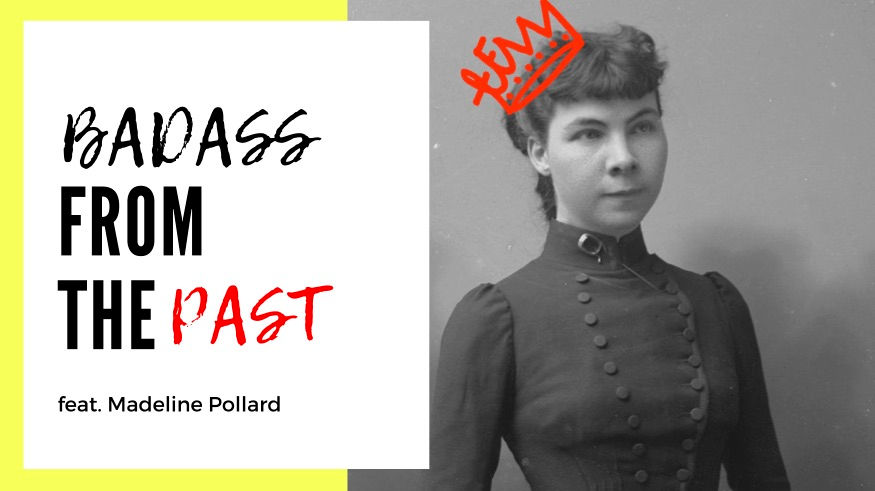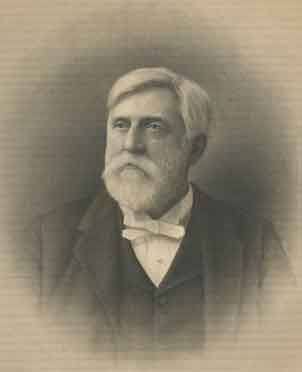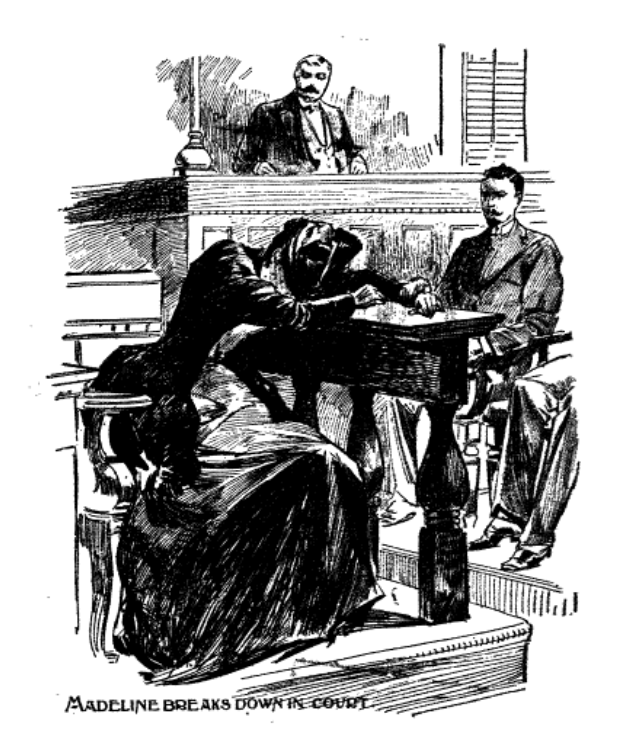Badass from the Past: Madeline Pollard
- Emily Sinclair Montague
- Mar 7, 2019
- 5 min read

Badass from the Past is a monthly series spotlighting astonishing historical women whose accomplishments have not been given their due. They changed the narrative, and now we're amplifying their stories. For more articles, see the tag #BadassFromThePast.
In the Spring of 1894, Washington D.C. was shocked by the unfolding of a landmark court case. For five weeks, Pollard v. Breckinridge arrested the nation as a single woman from a poor background took on one of the South’s most powerful senators and successfully sued him for $50,000. The charge? Her own ruin and a resulting breach of promise to marry.
Madeline Pollard, thirty years old and furious, challenged one of the most established social norms of the Victorian era: the sexual double standard.
Certain social norms were taken for granted during this time period. Women were expected to be chaste and remain virgins until marriage. They were meant to be meek, docile, and submissive to their male counterparts. To behave otherwise was to invite ostracization and scorn from society at large. If a woman was seduced, or even raped by a man outside of the confines of matrimony, she generally was blamed. This societal standard was made clear in court case after court case involving victimized women, with some plaintiffs being laughed out of the room for daring to challenge the powerful men who “ruined” them and reduced them to social pariahs.

Madeline Pollard came from humble origins. Her birthdate remains contested, but she herself placed it within the year 1866. She grew up poor but fairly happy, with a doting father and several siblings. Although Mr. Pollard was a saddler by trade, he was educated and dabbled in the law at least once during Madeline’s lifetime. He valued the pursuit of education and instilled this same value in Madeline, who was an eager scholar with a quick mind. When he died in 1876, Madeline and her family were devastated and destitute all at once. Her mother was forced to take out loans on their furniture to feed her children, and eventually the siblings were separated and sent to live with various relatives and acquaintances.
Madeline went to live with one aunt, and then another. She had hoped that one of them would pay for her education, but was ultimately disappointed in this hope. Madeline had “literary aspirations” and hoped to eventually make a living as a writer — for her, education was the way to raise her status in society and increase her opportunities. She attended public school and was considered a bright and accomplished student, but this meager education could only take her so far. Madeline yearned to attend seminary school, which offered a far better education for women than public institutions of the day, and then college.
With what would be later revealed as her signature tenacity, Madeline entered into an agreement with a Mr. James Rhodes in order to secure tuition for college. Rhodes assumed he and Madeline would be married upon her graduation. Madeline, however, had no such intentions. To her, Rhodes’ money was more of a good-faith loan that she eventually would pay off, not a marriage contract. Either way, she had no real intention of marrying the much older man. She enrolled at Wesleyan and excelled in her classes.
It was during her tenure at Wesleyan that Madeline encountered the famous Colonel William C. Breckinridge. He was 49 and married when they met, and he allegedly approached her in a train coach. An acquaintanceship was struck up, letters were exchanged, and the Colonel called upon Madeline at Wesleyan in August of 1883 after agreeing to help her escape her betrothal to Mr. Rhodes. The details become murky after this point, but certain facts remain. The two took a carriage ride together, alone, which was scandalous at the time. Eventually the couple had sexual relations, beginning a 10-year affair during which Breckenridge repeatedly promised to marry Madeline “as soon as he should be free to do so.”

When Madeline took the stand in 1894, she dared to bare the entire affair in excruciating detail. She opened herself up to unparalleled scrutiny and a media blitz that would seize the entire nation. Never before had a woman publicly revealed the details of her ruin in this way, least of all as they related to a powerful, established senator. She spoke of the two children she bore Breckenridge, both of whom she was forced to give up, and both of whom later died in orphanages. She gave intimate details of the Colonel’s promises to her, of his professions of love and intent to marry her, many of them given while he was still married to his first wife.
When his wife eventually died of fever, Breckinridge held Madeline at bay by stating that he needed to observe the acceptable mourning period of two years before planning to remarry. In the end, when he did remarry, it was with a socially prominent widow named Louise Scott Wing. Despite a previous engagement notice in the Washington Post naming her as his fiancee, and despite his promises, Breckinridge had jilted Madeline Pollard.
Madeline did not merely tell her story to the court and the nation in 1894. She hired two of the best lawyers in the country - almost certainly through the financial aid of anonymous benefactors - and gathered witnesses, documents, and other evidence against the Colonel. She had powerful allies on her side, including the prominent wealthy widow Julia Blackburn.
Madeline remained composed and determined as she told her story, only breaking down when she told the court of her two deceased children. Within a few weeks, she was able to galvanize women and turn the tide of public opinion against Senator Breckinridge. She took the “fallen woman” archetype and challenged it, remaining unapologetic and stating that she “thought it unjust that [she] should bear all the burden alone.” She made no excuses for her own behavior, nor did she ask for pity. She simply believed that it was high time for men to take responsibility for their actions, and for society to begin judging them as harshly as it did women for their sexual choices.

Madeline Pollard stunned the nation by emerging victorious from her suit. When election season rolled around, it was Breckinridge who was ruined.
Pollard v. Breckinridge has been called one of the first #MeToo moments. Whether she realized it or not, Madeline had begun to change the standards of both society and the courts when it came to disenfranchised women. She went on to live in the U.K. with a wealthy friend, and the two of them traveled the world and enjoyed a life of leisure together until her death.
Despite her disadvantaged upbringing and the challenges she faced as a woman in the Victorian era, Madeline’s case represented a turning point in the early women’s rights movement.
Do you have a badass from the past you'd like us to write about? Let The Fem Word know on Facebook, Twitter, and Instagram!



Comments